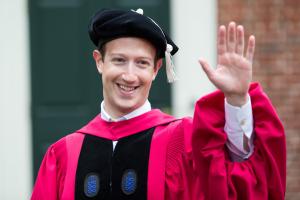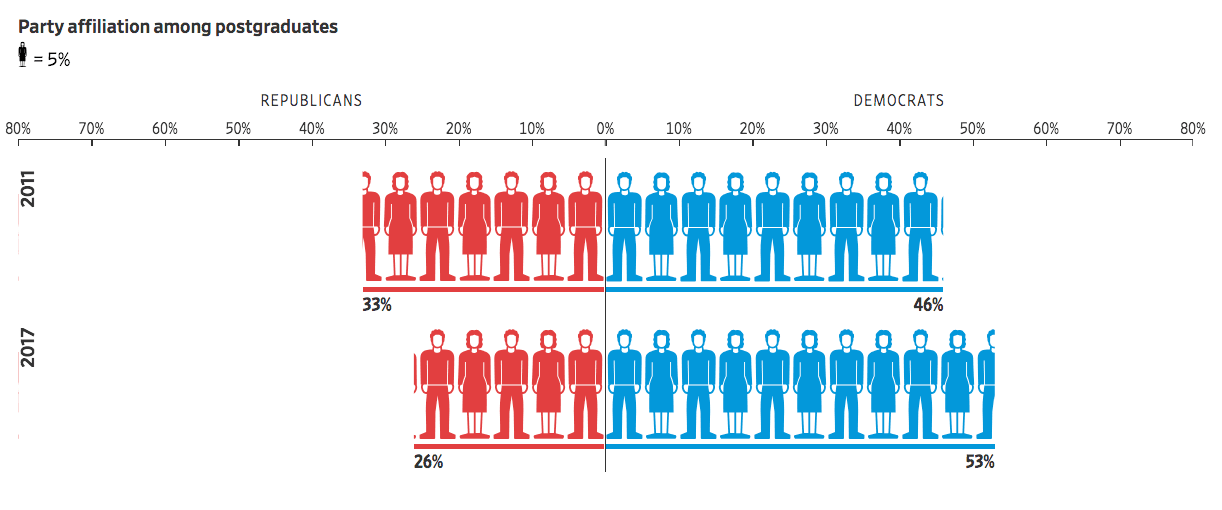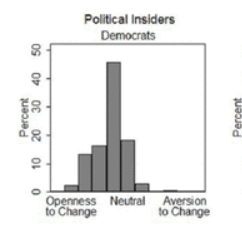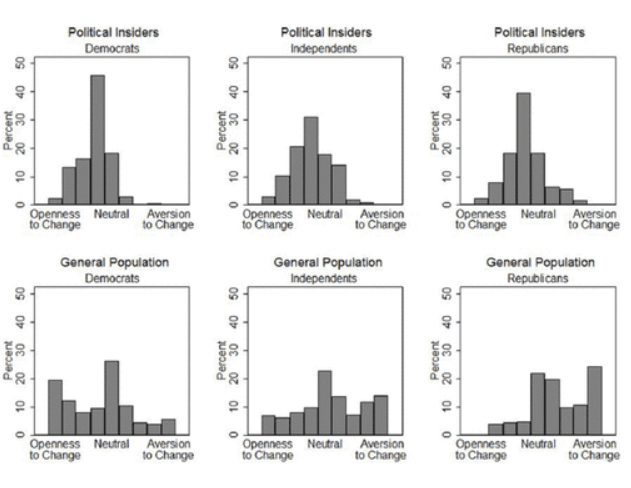The Democratic Party is being dragged to the cultural left by its growing cohort of upper-income, professional-class voters, according to a survey by the Wall Street Journal.
The push for power by college-graduate professionals is creating a split with the “Old Guard” liberals and with the younger cohort of “Blue Collar Democrats” which provide the larger share of the party’s votes on election day, the WSJ warned:
These college-educated liberals, many of them young and most of them white, make up a growing, Democratic “Professional Class.” Their interests differ in many ways from those of two other groups …
The college-educated, professional class of Democrats is doing the most to push the party to the left. Policy ideas such as instituting a government-run, single-payer health-care system were once promoted only by the most liberal voters. They are now widely supported within the party – with the professional class emerging as the most enthusiastic …
The professional class is also the most comfortable with same-sex marriage, changing gender roles and other recent social changes.
This professional class is relatively wealthy. More than 60 percent of this group earns more than $75,000 each year, the WSJ said.
In 2011, post-graduate voters split their vote 46 percent Democratic to 33 percent Republican. In 2017, that split widened to 53 percent versus 26 percent after non-college voters showed that they strongly backed Donald Trump in 2016. That switch shows blue-collar voters were turning away from the Democrats’ elite-boosting policies of imposed civic variety — or “diversity” — plus cheap blue-collar labor via immigration, favoritism for sexual minorities, funding for urban growth, and deference to unelected international government.
The Democrats’ postgraduate boosterism is supported by the new-industry CEOs, such as Facebook’s Mark Zuckerberg’s Facebook or Amazon’s Jeff Bezos. These business leaders are eager to suppress populist opinions that limit their worldwide ability to hire immigrants and sell products worldwide without any major cultural, economic or legal restrictions.
The Party’s cosmopolitan leadership class is fuelling a growing conflict with the party’s blue-collar base, says the WSJ:
Blue-Collar Democrats, who lack bachelor’s degrees, feel the most economically vulnerable. The Professional Class, which has college degrees, feels the most secure. As the aging Old Guard fades, the Blue-Collar Democrats’ skepticism of trade, U.S. leadership abroad and other matters may clash with the Professional Class’s support of engagement with the world.
… Blue-Collar Democrats as a group have often been least likely to see globalization as a benefit to the U.S. economy. This helps explain why some Democratic lawmakers agree with President Trump that trade deals have hurt workers.
These rational splits over economic and self-government also helped Donald Trump grab a small but critical share of the Democrats’ blue-collar votes in the 2016 election, including votes from African-Americans who oppose cheap-labor immigration. Similarly, a significant number of voters rejected the pro-transgender push by former President Barack Obama policies matched the preferences of the post-graduate class.
The WSJ survey does not explore the political gap between the pro-immigration professional class and the GOP-aligned business class, which is quietly using free trade, globalization, and immigration to cut the salaries paid to the Democrats’ pro-diversity college graduates. However, since President Donald Trump was elected by populist voters in 2016, the Democratic Party’s post-graduate class has moved towards a tacit political alliance with Wall Street.
The WSJ survey is a rare media recognition that the Democratic Party’s policies are increasingly aligned with the globalist and diversity policies which aid the income and status of the high-IQ, post-graduate class — which also includes many people who work in the media.
Most surveys tend to portray the political preferences of the professional class as independent of rational self-interest.
For example, a May 7 study by two post-graduate professors argued that “aversion to social change is strongly predictive of support for Trump at the mass level, even among racial minorities.” That language suggests that acceptance of “social change” is the proper position for voters to take, regardless of the proposed change.
The study noted the changing views within each party while disregarding the rational reasons for elites and blue-collars to differ over free trade, migration, civic diversity and social solidarity:
The two American parties appear to be polarizing on a “national identity” dimension used in studies of international parties, where one party advocates “toleration and social and political equality” for minorities over assimilation and the other favors “defense and promotion of the majority national identity and culture”
But the study also produced a remarkable chart showing the attitude of Democratic political insiders towards the pro-American views of normal voters.
The two authors at Michigan State University — Matt Grossman and Daniel Thaler — admitted to Breitbart News that attitudes on their “openness to change” charts may be guided by rational calculations. Grossman told Breitbart News:
They are widely-held views likely related to underlying personality differences and political predispositions … I agree that they are related to the preference for social stability, which can be quite rational.
Thaler responded:
Whether aversion to social change is rational or good is a largely subjective question, which falls outside the scope of our research.
Their paper also included a set of charts showing how Democratic and GOP elites show more “openness to change” than do Democratic voters, GOP voters, and swing-voting independents.




COMMENTS
Please let us know if you're having issues with commenting.